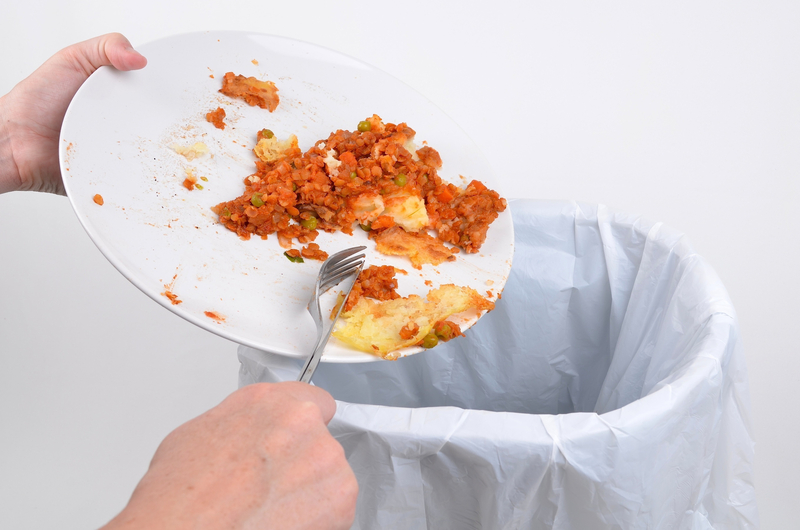Pay Less: Insider Tricks for Bulky Waste Removal
Are you tired of high costs and hassle when removing bulky items from your home or yard? You're not alone! Bulky waste removal can be pricey and overwhelming, especially if you don't know where to start. Thankfully, there are several cost-effective methods and smart strategies to help you dispose of unwanted furniture, appliances, and other large items without breaking the bank. In this comprehensive guide, you'll discover proven insider tricks to pay less when managing your bulky waste removal needs.

Understanding Bulky Waste: What Does It Include?
Before diving into clever tips, it's helpful to understand what constitutes bulky waste. This type of rubbish typically includes large, heavy items that cannot be collected with your regular household garbage.
- Furniture (couches, chairs, beds, wardrobes)
- Large appliances (washing machines, refrigerators, ovens)
- Mattresses and bed frames
- Outdoor equipment (grills, lawnmowers, patio furniture)
- Construction waste (old doors, windows, bathtubs)
- Garden waste (tree branches, large trimmings)
Municipalities frequently set strict rules on which bulky items they'll collect, so always check local guidelines. Items like tires, chemicals, or electronics may need special handling.
Why Can Bulky Waste Removal Be So Expensive?
The main factors driving up costs for large item removal are:
- Transportation - Bulky items require bigger vehicles, often rented or hired.
- Labor - Lifting and carrying heavy waste demands more workforce.
- Disposal fees - Landfills often charge extra for large or difficult-to-process waste.
- Regulations - Hazardous materials require special permits and procedures.
The good news? With research and the right approach, you can dramatically reduce your bulky rubbish removal expenses.
Smarter Solutions: Insider Tricks for Low-Cost Bulky Waste Disposal
1. Take Advantage of Free Council Collections
Many local councils across the UK, Australia, and the US offer free or low-cost bulky waste collection days throughout the year. You just need to book in advance and follow guidelines (e.g., curbside placement, item limits). Sign up for council newsletters or alerts to stay informed of upcoming collection dates.
- Tip: If slots are full, ask neighbours when they're next booking and combine loads to split costs.
2. Donate or Gift Usable Items
Charities, thrift shops, and online community groups often collect large gently-used items for free. By donating, you save money and help others.
- Contact organisations like Goodwill, The Salvation Army, or Emmaus to arrange pickup.
- Use Facebook Marketplace, Freecycle, Nextdoor, or Gumtree to offer items for free to locals.
- List specifics (size, condition, pickup requirements) for faster results.
*Bonus: Some charities offer tax deduction receipts for your donations!
3. Sell Your Bulky Waste
Surprisingly, what you see as "rubbish" may be valuable to someone else. Upcyclers, vintage hunters, and repairers often seek out secondhand furniture or appliances.
- Post items on online marketplaces--local sales avoid shipping hassles.
- Be honest about condition but highlight potential ("Can be restored," "Great for projects").
- If you're moving, include these items in your garage or yard sale to attract bargain hunters.
4. Hire a Skip Together With Neighbors
Hiring a skip or dumpster is one of the most convenient ways to handle a mound of bulky waste--but it can be expensive. Co-share costs with neighbours by renting a skip together, especially if you time it during spring cleaning or move-out periods.
- Get quotes from at least three companies--ask for off-peak or group discounts.
- Ensure everyone understands what can legally go into the skip to avoid fines.
- Fill the skip efficiently--disassemble furniture and flatten boxes for more space.
5. Use Bulky Waste Removal Services Only for the Heaviest Items
Professional removals are ideal if you have items you truly can't move yourself--like pianos, safes, or massive appliances. However, minimise expense by:
- Moving smaller items yourself (to the tip/recycling centre) to reduce the load.
- Comparing multiple quotes--inquire about weight or volume-based pricing rather than flat fees.
- Checking for discounts or package deals if you have multiple items.
6. Check for Manufacturer or Retailer Disposal Programs
Appliance stores and furniture retailers sometimes offer take-back programs when you buy a replacement item. For example, if you purchase a new sofa, ask if they'll remove the old one as part of the delivery service. These services can be included or discounted for new purchases and may save you both money and hassle.
7. Explore Community Clean-Up Events
Several towns and cities annually host community clean-up or "dumpster days" where residents can bring bulky junk to a central location free or at a minimal fee. Watch for local flyers or municipal websites.
8. DIY Drop-Off at Local Recycling Centres
Transporting your own large rubbish to a local waste transfer station or recycling facility is often the cheapest solution--sometimes it's even free for residents.
- Borrow or rent a van or trailer if you don't have one.
- Call ahead to confirm what they accept and current fees (if any).
- Be ready to show proof of residency if required.
9. Repurpose or Upcycle
With a little creativity, you can turn some "bulky waste" into something useful, beautiful, or marketable!
- Turn old wooden furniture into planters or new storage solutions.
- Use pallets for garden beds, compost bins, or shelving.
- Sell or donate as material for artists or DIY enthusiasts.
Common Mistakes to Avoid When Removing Bulky Waste
- Not planning ahead--waiting until the last minute usually means you'll pay more for emergency removal.
- Ignoring local rules--dumping items illegally can result in hefty fines.
- Overloading your vehicle or skip, risking extra charges or safety violations.
- Paying for removal of items that could be donated or sold.
Preparation is key. By researching your options and pre-sorting your waste, you will save both money and time.
Optimized Tips for Bulky Waste Collection and Disposal
* Compare All Your Options
Don't settle for the first quote or method you find. The bulky waste collection market is competitive--ask about specials, off-hours discounts, or "man with a van" services. Always read reviews for reliability and service quality.
* Time Your Disposal Strategically
Certain months, such as post-moving season or after large holidays, see high demand for removal services and higher costs. If possible, schedule your disposal during off-peak times for better rates.
* Bundle Services
Some companies offer lower rates if you combine bulky waste disposal with other services, like garden clearance or general rubbish removal.
* Disassemble Large Items
A few minutes spent breaking down furniture (removing legs, separating components) can lower removal costs by saving space and labor time.
How to Choose the Right Bulky Waste Removal Service
Key Questions to Ask:
- Are collection fees charged by weight, volume, or number of items?
- Are certain items (like mattresses, fridges) subject to surcharges?
- Will they recycle or donate items instead of dumping them?
- What insurance and licensing do they carry?
- Are there hidden fees (like stairs, carry distance, or after-hours)?
Red Flags to Watch Out For:
- No physical business address or proof of insurance.
- Unusually cheap quotes (often means illegal dumping).
- Refusing to provide written estimates.

Frequently Asked Questions About Bulky Waste Removal
What's the Cheapest Way to Get Rid of Bulky Waste?
The absolute cheapest method is DIY drop-off at your local council tip or recycling centre, provided you have transportation and the item is accepted. For single items, free or charity pickup is often possible.
Can I Leave Bulky Items on the Kerb?
Check your council's rules. Unlawful kerbside dumping is illegal in many cities and can result in up to ?5000 in fines. Only leave items out if you have a scheduled pickup or special event.
Can Bulky Waste Be Recycled?
Absolutely! Items like metal furniture, white goods, and untreated wood can be recycled or repurposed. Always request recycling if hiring a removal service.
What Should I Do With Hazardous Large Items?
Old fridges, electronics, or paint cans require special handling. Many councils and retailers offer safe disposal schemes--never mix these with general bulky waste.
Conclusion: Save Money and Stress on Bulky Waste Disposal
Bulky waste needn't mean bulky bills. Whether you're replacing old appliances, clearing out a house, or finishing a renovation--these insider tricks help you spend less while managing waste responsibly. Plan ahead, research options, and think creatively. From free council collections and donations to smart co-sharing of skips, you can keep bulky waste removal affordable and stress-free.
Remember: Reduce, reuse, recycle--and always check local regulations to avoid fines and make the most of available services. Follow these tips to pay less for bulky waste removal and enjoy a cleaner, clutter-free space.